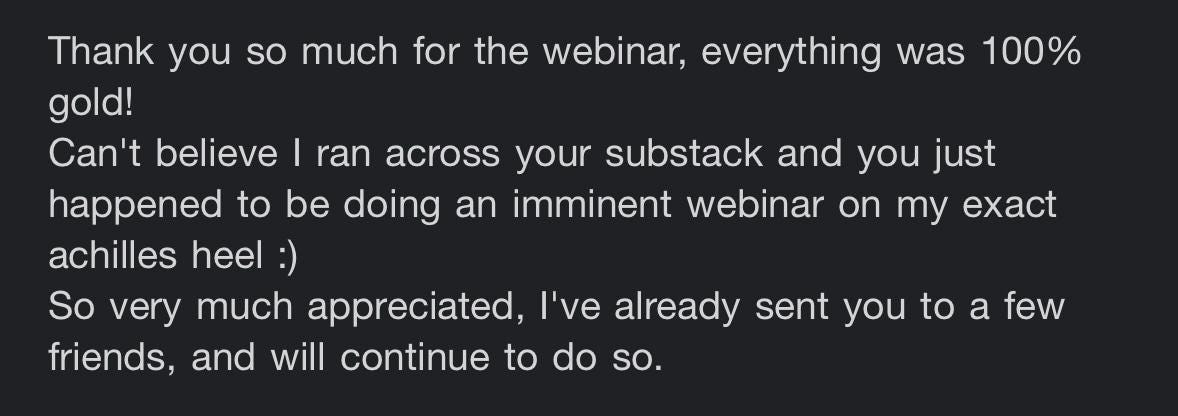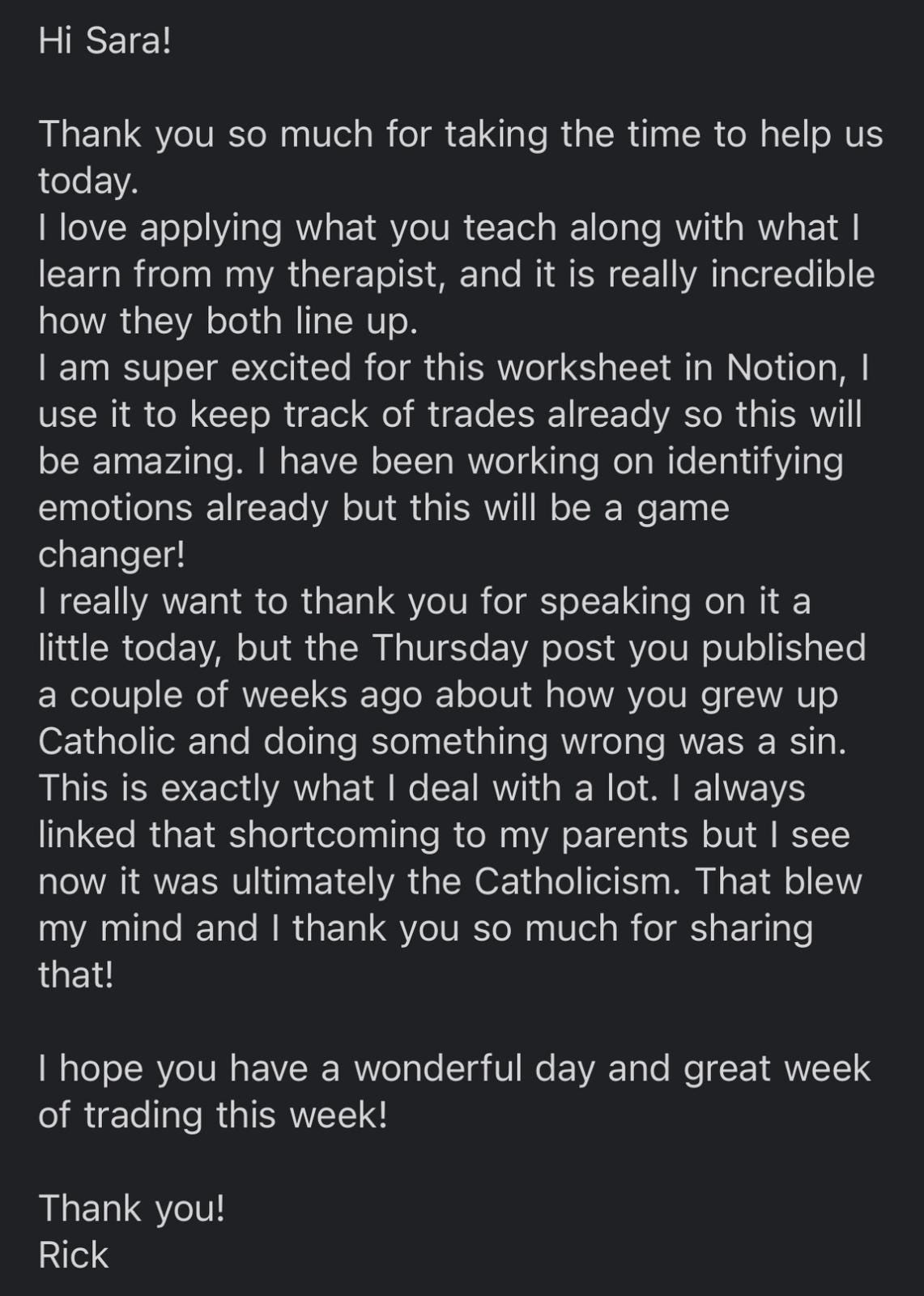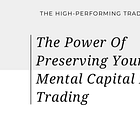The Moment You Enter a Trade, You Lose Objectivity
And a 3-step mental protocol to bring it back.
The Thursday Trader's Tip is your weekly performance edge in under 5 minutes. Want deeper coaching tools, mental frameworks, and live access to my performance webinars? Upgrade to paid to get full access:
Ever notice how trades seem clearer before you take them?
That’s not just a feeling. It’s your brain playing tricks on you.
A classic study in horse betting revealed something surprising:
Right after placing a bet, bettors suddenly felt way more confident in their horse’s chances of winning.
Same horse, same odds, but more conviction just because they committed.
The same thing happens in trading.
The moment you hit buy, neutrality is gone. You start defending the trade, expectations rise — and when they’re crushed, dopamine crashes. That’s when the urge to act kicks in, as your brain tries to restore balance.
So, how do you break the cycle?
It starts before the trade.
Most traders think they lose control because they lack discipline.
If you go into trades with the belief they’ll work, then even the strongest discipline can’t save you. Why? Because you’ve already convinced yourself it has to work.
You need to anchor yourself. And the best time to do this is before you take the trade.
The Premortem Protocol
One of the most powerful tools I use with traders is a technique called the Trade Pre-Mortem Analysis.
It’s adapted from medicine. Doctors perform post-mortems to understand the cause of death of a patient. Later, businesses adapted this into the premortem — where teams imagine a project has already failed and then ask: “Why?”
By predicting failure ahead of time, they spot weak points early and improve their odds of success.
I use the same idea in trading — with a simple 3-question protocol before entries.
The 3-Questions:
1. If this trade ends up being a loss, will I regret taking it?
This helps you connect with process quality, not outcome.
If you’re 100% sure the entry is valid (objectivity around your entries helps), then there’s nothing to regret about. And when you trust your entry, it’s easier to stay calm during the trade.
2. What could invalidate this trade?
Two events have the power to invalidate your trade:
Your stop-loss
Your trade invalidation rule.
If price breaks key structure, indicating weakness on a long position, the expected value changes, meaning probabilities have changed. More on that here.
What do you do then? Maybe you want to exit or scale out some.
These red flags only become clear with experience and data. Asking this keeps you alert to real signals, not just hope.
3. If it loses, how will I use that feedback on the next trade?
This keeps you anchored in improvement. You’re not trying to use the trade to defend your ego; you’re looking at how you’ll make the most of that loss.
These questions work.
In a study with 178 participants evaluating a project, the group using the premortem reduced overconfidence by 25% — outperforming all other groups who only predicted risks, pros & cons, amongst other techniques.
In trading, that’s a serious edge.
In Closing
You don’t need to control your brain chemistry. But you can influence your expectations. And that changes the game.
Less prediction error = less dopamine crash = fewer emotional trades.
Try the PreMortem next time.
Peaceful trading,
Sara
P.S. Missed Saturday’s live masterclass on Impulse Control & Emotional Regulation?
The replay is now up for the paid audience.
Some Feedback from the Webinar:
Related Reads:













Yes! Essential questions before entering all trades.
Also, planning ahead for exactly what to do if the trade doesn't work out helps reduce anxiety.
For example, "I'll step away and go for a run, then I'll patiently wait for the next level that I already have identified."
This is called downside planning
Thanks Sara, I will add these three questions to my charts.